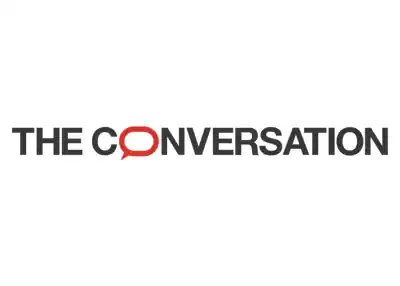“I am definitely not following the news anymore,” one patient told me when I asked about her political news consumption in the weeks before the 2024 U.S. presidential election.
This conversation happened around the time I talked with a local TV channel about why we saw “>I am a psychiatrist who studies and treats fear and anxiety. One of my main mental health recommendations to my patients during the 2016 and 2020 election cycles was to reduce their political news consumption. I also tried to convince them that the five hours a day they spent watching cable news was only leaving them helpless and terrified.
Over the past couple of years, though, I have noticed a change: Many of my patients say they either have tuned out or are too exhausted to do more than a brief read of political news or watch one hour of their favorite political show.
Research supports my clinical experience: A “>In 2023, 8 out of 10 Americans described U.S. politics with negative words like “divisive,” “corrupt,” “messy” and “polarized.”
In my view, three major factors have led Americans to exhaustion and burnout with U.S politics.
1. The politics of fear
In my 2023 book, ““>found an ally in fear: a very strong emotion that can be used to grab our attention, keeping us in the tribal dividing lines and making us follow, click, tap, watch and donate.
Over the past few decades, many people have felt a strong push for tribalism, an “us vs. them” way of seeing the world, turning Americans against one another. This has led to a point where we are not just in disagreement with each other. “>social media algorithms feed them content where everybody talks and thinks alike. If you hear about the other side, it is only about their worst attributes and behavior.
The disconnect is so wide that people are not even able to comprehend the “>at best, unintelligent and stupid; and at worst, immoral and evil.
3. People’s political opinions have become their identities
“>since the early 2000s, this ability to connect despite political beliefs has decreased.
The majority of both Democrats and Republicans said in a 2022 Pew Research survey that someone’s political ideas are an indicator of their “>Fear as a deeply ingrained survival mechanism takes priority over other brain functions.
Fear guides your memories, feelings, attention and thoughts, and can cause you to keep watching, scrolling and reading to monitor this perceived threat. Positive or neutral news could then become uninteresting because it is not important in your survival response. That has been the key to a person’s deep engagement with the fear-based political news.
But too much fear does not keep someone engaged forever. That is because of another survival mechanism – what’s called “learned helplessness.”
In 1967, American psychologist Martin Seligman “>brain’s fear region – called the amygdala – is hyperactive. Meanwhile, emotion-regulating brain areas like the prefrontal cortex decrease in activity under these circumstances.
Learned helplessness also means the brain mechanisms commonly involved in regulating anxiety and depression don’t function as well.
When working with patients who have suffered from long periods of intense anxiety, fear, trauma and exhaustion, I see learned helplessness showing up in the form of depression, loss of motivation, fatigue and lack of engagement with the world around them.
The COVID-19 pandemic, more than a decade of intense political stress, polarizing social media and wars across the world, as well as



